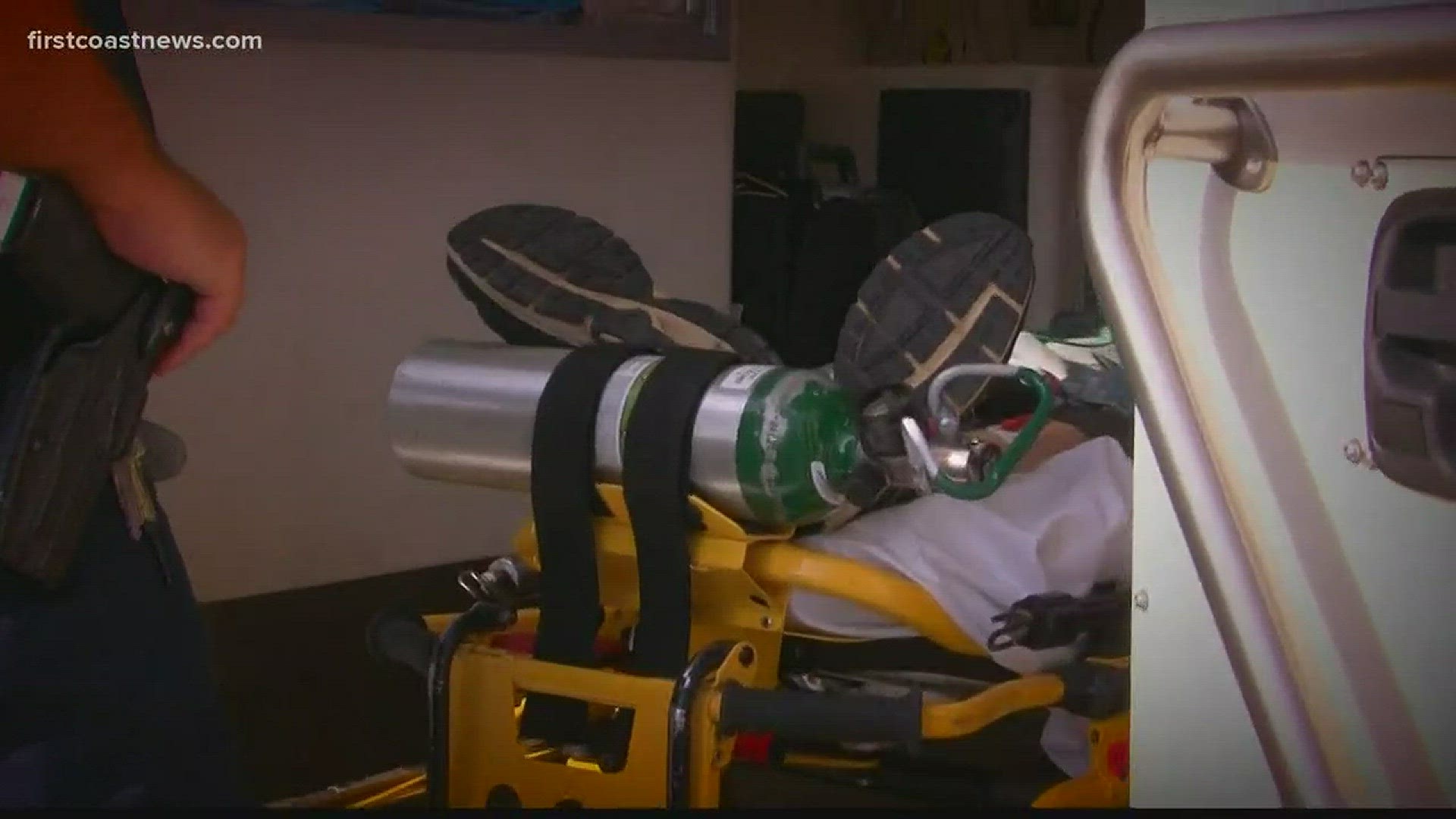JACKSONVILLE, Fla. -- As opioids claim more lives, doctors say they are seeing an uptick in lifesaving organ transplants.
Opioid addiction is a growing health epidemic. Last year, opioid deaths increased 55 percent to 64,000 deaths in the U.S.
"You know in the past, people were sometimes reluctant to use these as donors because of concerns either with regards to organ quality or with regards to risk of transmission," said Dr. Kristopher Croome, a surgeon at the Mayo Clinic in Jacksonville.
Croome said often times, however, the victims of opioid deaths are often young and otherwise healthy. He also said he is seeing first-hand an impact the opioid epidemic is having.
"I think now, it's about 25 percent of our transplants are coming from people with drug-related deaths," he said. "So you know, we were doing probably close to 400 transplants a year, so that's about 100 extra people that received organs because of it."
Every year, thousands die waiting for a transplant. Right now, more than 127,000 people are waiting for a transplant in the U.S., and more than 10,000 are waiting for them here in Florida and Georgia.
As opioid-related deaths climb, so do organ donations. 2016 marked a new record high for the fourth consecutive year for organ transplants.
"Over the last couple of years, there's been over a thousand increase in donors nationally and almost 50 percent of that has been related to drug overdoses," he said.
In the past, those organs were often not used in transplants because doctors did not know how they would function and patients were skeptical of getting diseases like Hepatitis C and HIV, but that is changing.
Since 2012, Croome said there have only been four documented cases of hepatitis C transmission unintentionally from a donor to a recipient and no cases of HIV.
Patients must give their consent before receiving an organ from someone who has died of an overdose.
Research being conducted at the Mayo Clinic that will be published in the next few months shows what can happen if a patient waiting for a liver transplant turns one down.
"What we found as I said was if you declined one of those organs, your risk of mortality was almost twice as high compared to someone who accepted it," he said.
For those families who lose loved ones to opioids, giving the gift of life can help them see something positive come from something so tragic.
"Obviously, with any organ donation, there's a tragedy that preceded so nobody wants to see organ donors in that sense," he said. "I think we would all hope that something could be done to curtail this opioid epidemic, but I think when it happens and the families are wanting to move forward and really help some people, they can do a lot of good."
Click here to sign up to be an organ donor.

